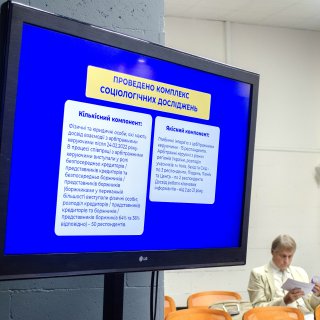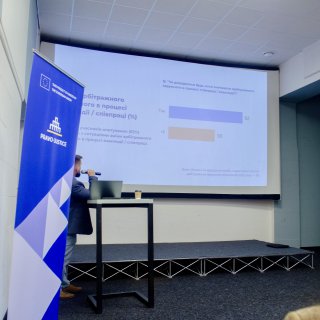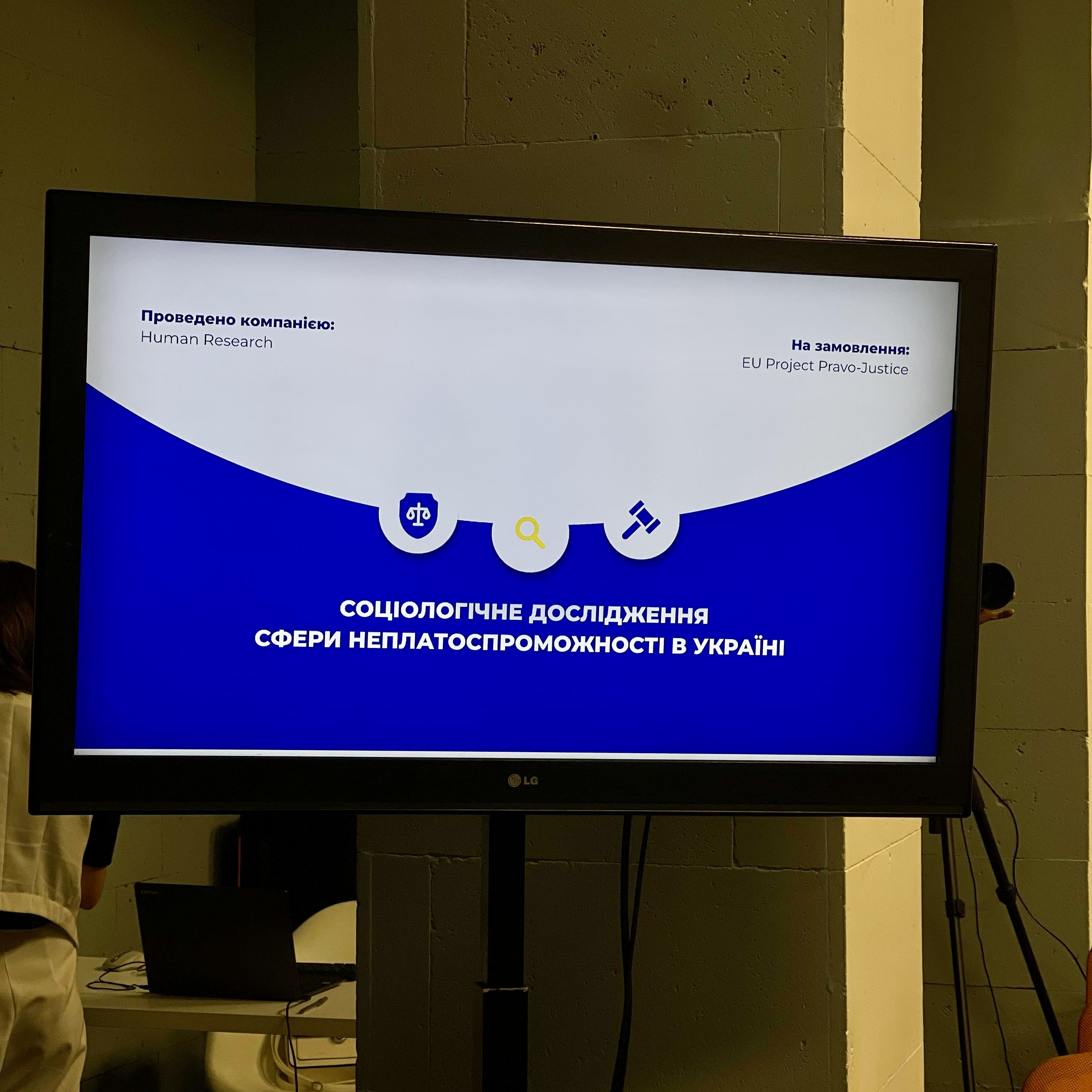On October 2, the presentation of the report on the results of the study of the field of arbitration managers of Ukraine was held at the initiative of the EU project Pravo-Justice.

Nataliya Tyshchenko, managing partner and arbitration manager, attended the event to get a closer look at the analytics of her field. The study of the field of arbitration rulings was conducted according to many criteria. The full version of the study can be found at the link.
In particular:
Evaluation of the National Association of Arbitration Managers of Ukraine (NAAKU)
The activities of the NAAKU were positively evaluated by the majority of arbitration managers, the following main functions performed by the organization were noted:
- protection of the rights of community members in case of their violation;
- a significant positive role of NAACU in the process of conducting inspections of arbitration managers and in the activities of the Disciplinary Commission, the Association ensures the objectivity and professionalism of inspections, decisions of the commission;
- informing the community about legislative novelties / changes;
- conducting various forums where you can get new useful professional information, exchange experience with colleagues;
- The association has performed a unifying function for community members and continues to perform it;
- volunteerism, assistance to the Armed Forces of Ukraine and members of the community.
Certain key informants noted that at the moment they cannot clearly formulate what role the Association plays in professional activities, especially that they have not yet felt the benefits of NAACU. Among the barriers that stand in the way of reforming the legal system and system of justice, it was noted:
- the slow movement of the implementation of reforms and the lack of a comprehensive approach to reforming as a whole;
- ineffective activity of the judicial and law enforcement system;
- the corruption of Ukrainian society, in particular corruption in the judicial system;
- bureaucracy; inconsistency of existing laws;
- the low professional level of civil servants who are responsible for the formation of state policy and the implementation of reforms and the insufficient level of general awareness of the planned reforms, their goals and objectives.
According to the participants of the in-depth interviews, the main difficulties in reforming the bankruptcy sphere are:
- contradictory interpretation of existing legislative novel, lack of principles of uniform law enforcement practice, untimely coordination of various laws and regulatory documents, long-term amendments to laws and regulatory documents;
- the presence in power of various influential groups that protect their interests during the reform process (especially representatives of the banking sector);
- inefficient work of the judicial system;
- lack of spread of the practice of subsidiary and joint liability;
- insufficient involvement of members of the community of arbitration managers in the development of draft laws.




